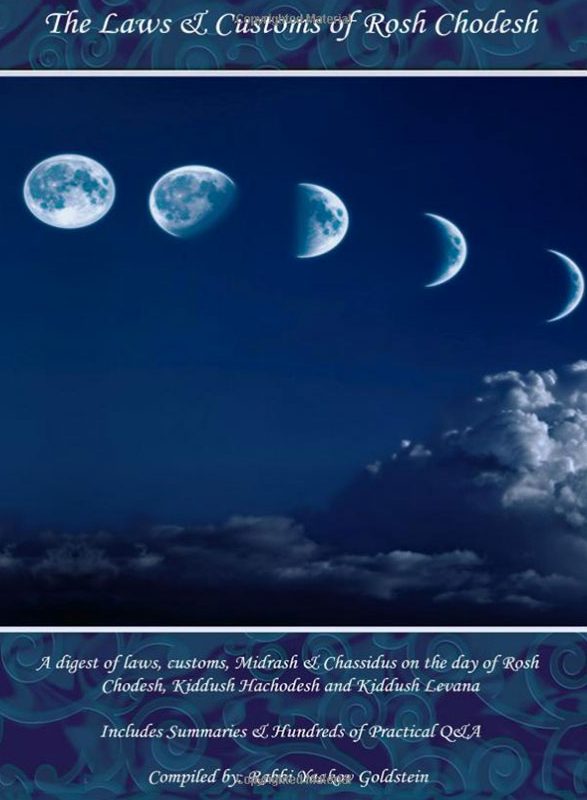
This Halacha is an excerpt from our Sefer
Buy me here or on Amazon.com
Seeing the moon:
A. Obligation to benefit from the moon light:
The blessing over the new moon may only be said at night when the moon shines and one thus benefits from its light.[1] It must shine to the point that its light is visible on the ground.[2]
Bedieved:[3] If one said the blessing without seeing the moonlight, and consequently without being able to benefit from it, he must repeat the blessing at another time when the moon shines.
B. If the moon is covered by clouds may one recite Kiddush Levana?[4]
If the moon is covered by clouds, the blessing may only be said if the clouds are thin enough to still be able to benefit from the moonlight, meaning that one is able to recognize matters which are recognizable due to moonlight.
Bedieved:[5] If one said the blessing while the moon was covered to the point that one could not receive benefit from its light, he must repeat the blessing at another time when the moon shines.
C. What should one do if he began the blessing and a cloud then covered the moon?[6]
If one began the blessing with a clear moon and the moon then became covered by clouds, one is to nevertheless continue the blessing. Initially, however, if to begin with one knows the moon will become covered by clouds in middle of the blessing, then he is not to say the blessing [and is rather to wait for a more opportune time]. [Some Poskim[7] however rule that even initially one may say the blessing so long as he begins it within Toch Kdei Dibur of it becoming covered by the cloud.[8] Others[9] however argue on their ruling.]
A sign from heaven:[10]
In a month that one is able to recite Kiddush Levana on Motzei Shabbos it is a good omen from Hashem that the month will be successful. A month that one is unable to recite Kiddush Levana that month due to it being covered by clouds, that month will not be successful.
_______________________________
[1] Rama 426/1
[2] So rules M”A 426/1 that its shine must be apparent from the ground, and so rules M”B 426/3; However some Poskim rule that this is not to be taken literally. Rather so long as one can see the moon light and ray of the moon shining, it is valid to say the blessing. [Birkeiy Yosef 426/4, brought in Kaf Hachaim 426/17]
[3] M”A 426/1 from Radbaz 1/154
[4] M”A 426/1 from Radbaz 1/154; M”B 426/3; See Ashel Avraham Butchach 426
Other Poskim: Some Poskim rule one is never to say the blessing when the moon is covered even by a thin cloud. [Ben Ish Chaiy Vayikra 23; Chida in Moreh Bietzba 184 brought in Kaf Hachaim 426/18]
[5] Magen Avraham ibid
[6] M”A 426/1 from Radbaz 1/154; M”B 426/2
[7] Reb Chaim Tzanzer brought in Biur Halacha 426/1 “Vinehnin Meorah”.
[8] Meaning they allow one to say the blessing even after it has become covered by clouds, so long as one begins the blessing within Toch Kdei Dibbur of the moon becoming covered. Practically, Toch Kidei Dibur is about two seconds and hence the blessing may only be started even according to this opinion within two seconds of the moon becoming covered.
The reason behind their allowance: This opinion views this blessing similar to all other blessings said over sights [such as lightning] in which the ruling is it must only be seen at the moment of the blessing.
[9] Mishneh Berurah in Biur Halacha 426/1 “Vinehnin Meorah
[10] Magid Meisharim Shir Hashirim, brought in M”A 426/2



Leave A Comment?
You must be logged in to post a comment.